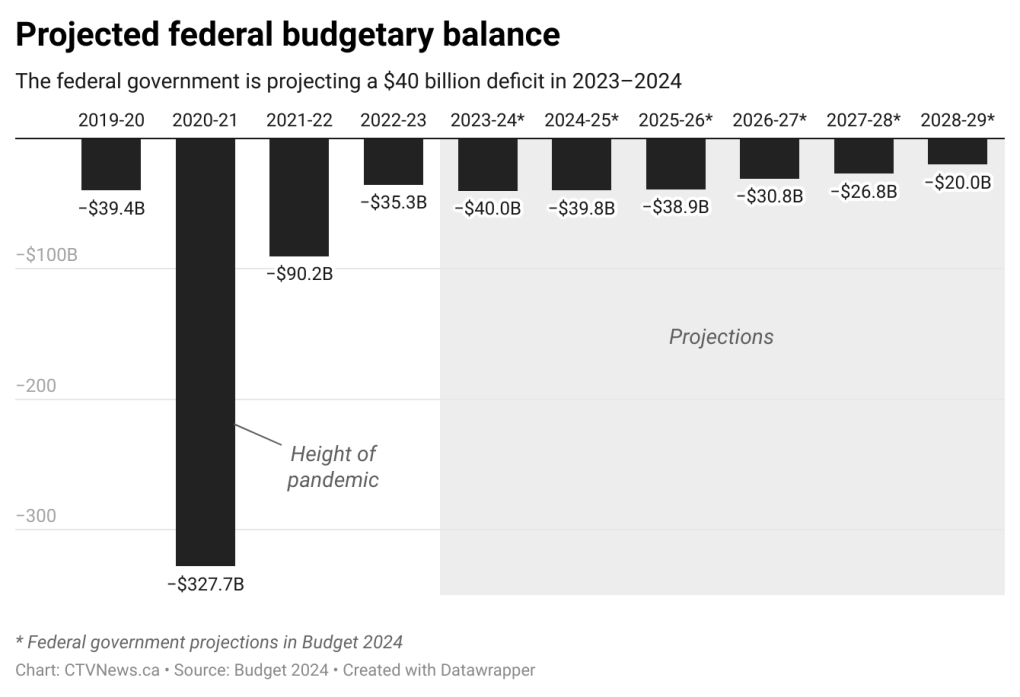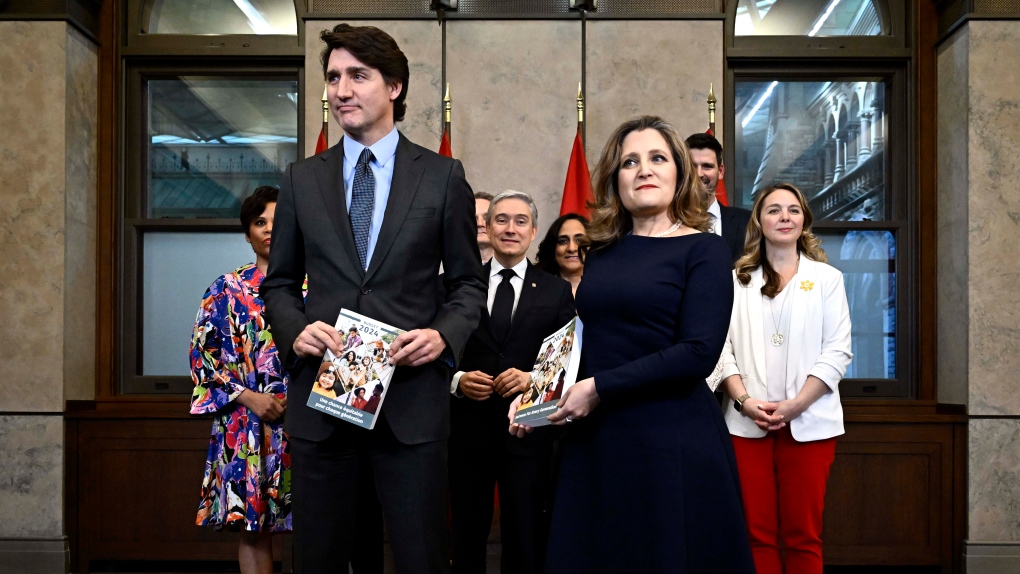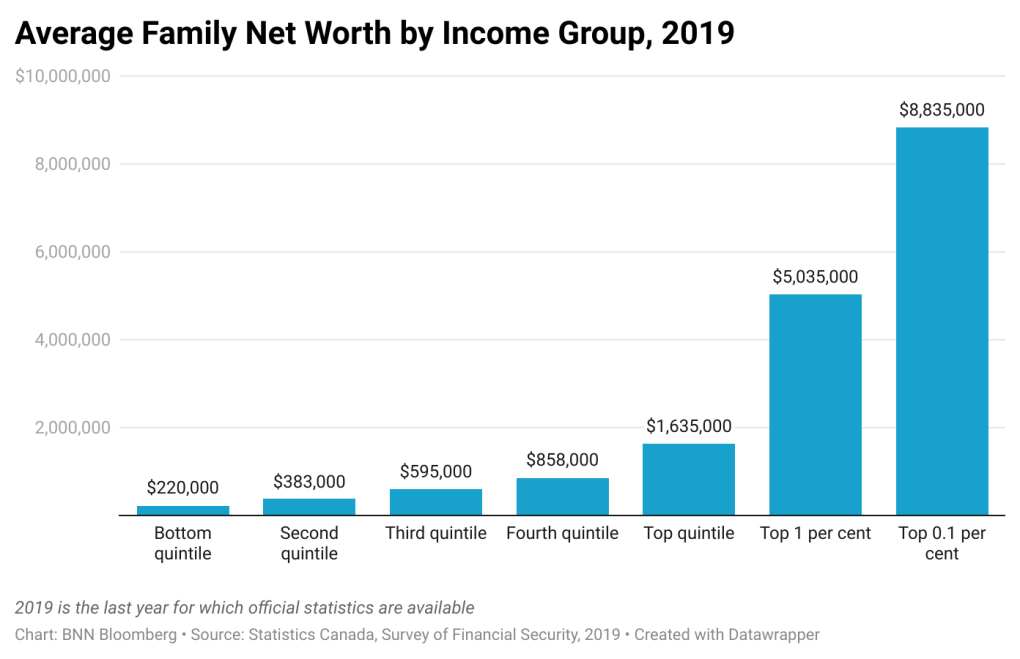Article content
Here is a roundup of stories from The Canadian Press designed to bring you up to speed on what you need to know today…
Liberals to sell budget as boon to fairness
The latest:
Intensive care cases in Australia’s New South Wales will hit a peak in October as COVID-19 infections accumulate, said the premier of the country’s most-populous state, which reported record daily new infections on Monday.
New South Wales, the epicentre of Australia’s current outbreak, declared a record 1,290 new cases as the nation struggles to contain the highly contagious delta variant.
Premier Gladys Berejiklian said the state was preparing for additional hospitalizations as infections pile up, before increased vaccination coverage starts to ease the pressure.
“We anticipate that the worst month, the worst time for our intensive care unit, will be in October,” Berejiklian said in the state capital Sydney.
“We will need to manage things differently because we are in the middle of a pandemic, but we will cope.”
There are 840 people in hospital for COVID-19 in New South Wales, with 137 in intensive care and 48 requiring ventilation. The state reported four additional fatalities on Monday, taking the COVID-19 death toll to 1,003 in Australia.
One of the four was the first known death of an Aboriginal person. The 50-year-old man, who was not vaccinated, lived in western NSW where vaccination rates are particularly low, raising fears there will be many more deaths there.
“Aboriginal people were deemed to be vulnerable communities, vulnerable groups in the vaccine rollout. And clearly that has failed,” Linda Burney, Labour’s Shadow Minister for Indigenous Australians, told reporters.
Australia has used a system of strict lockdowns and quarantine to keep coronavirus infection and death rates lower than in most comparable nations, however the delta variant is now pressuring health services.
Just over 33 per cent of those aged 16 and older have received two vaccine doses, well below most comparable nations, according to government data.
-From Reuters, last updated at 7:15 a.m. ET
There is growing concern in Western Canada as COVID-19 cases increase, and though B.C. has reinstated a mask mandate and vaccine passport, Alberta and Saskatchewan don’t appear to be looking at making any changes. 2:00


As of early Monday morning, more than 216.4 million cases of COVID-19 had been reported worldwide, according to Johns Hopkins University, which has been tracking coronavirus cases. The reported global death toll stood at 4.5 million.
In the Americas, the government’s top infectious disease expert says the U.S. is sticking with its recommendation for Americans to get coronavirus booster shots eight months after receiving the vaccine but will be open to changes based on evolving data. Dr. Anthony Fauci said there’s “no doubt” in his mind that people will need to get an extra shot after they have received the two-dose Pfizer or Moderna vaccine, given the highly contagious delta variant.
He indicated the administration remained focused on doing that in an “expeditious” and “feasible” way after the eight-month mark, with doses beginning the week of Sept. 20, pending approval from the Food and Drug Administration.
In the Asia-Pacific region, Singapore has fully vaccinated 80 per cent of its population, reaching a milestone that would make the country “more resilient to COVID-19,” according to a top government official. Singapore’s 80 per cent vaccination rate among its 5.7 million population ranks it among the most vaccinated countries in the world.
“It is the result of the collective effort of many people working behind the scenes, and the people of Singapore coming forward to take care of themselves and the people around them,” said Singapore’s Health Minister Ong Ye Kung in a Facebook post Sunday.
In the Middle East, Israel on Sunday began offering a booster to children as young as 12, and its prime minister said a campaign that began a month ago among seniors has slowed a rise in severe illness caused by the delta variant.
Yemen received its first shipment of vaccines made by Johnson & Johnson on Sunday, roughly 151,000 doses, the health ministry said.
In Africa, health officials in South Africa reported 7,740 new cases of COVID-19 on Sunday and 134 additional deaths.


In Europe, some two million French workers in restaurants and other service jobs must now show a health pass to go to work, as part of government virus-fighting efforts. The public is already required to show the pass to go to French restaurants, tourist sites and many other public venues.
Several thousand people marched through the streets of Berlin on Sunday for a second day of unauthorized protest against vaccinations and restrictions aimed at curbing a fourth wave of the pandemic.
-From Reuters, The Associated Press and CBC News, last updated at 7:05 a.m. ET


Here is a roundup of stories from The Canadian Press designed to bring you up to speed on what you need to know today…
Liberals to sell budget as boon to fairness
Article content
It’s now up to the federal Liberal government to sell a spending plan it says will help younger Canadians catch up to their elders.
So far, if unsurprisingly, their critics and political rivals are unimpressed.
Advertisement 2
Article content
The $535-billion budget seeks to restore economic fairness for millennials and gen-Z voters at a time when the minority government is ailing in the polls.
It includes $8.5 billion over five years to help build millions of homes and another $2.6 billion for student aid and grant programs.
And it commits funding to the first phase of national pharmacare and promises federal standards for long-term care — two commitments the Liberals made to the NDP.
But New Democrat Leader Jagmeet Singh isn’t in a hurry to say if his party will vote to support the budget and keep the minority Liberals in power.
Federal budget announces measures for open banking
The federal budget announced several measures affecting the banking sector, including long-promised details about a framework for open banking.
Open banking is a system that would allow consumers to easily access their financial data across multiple institutions, apps and services.
The specifics will come with legislation to be tabled before the end of the year, but the federal budget sets out six core elements for the framework.
Advertisement 3
Article content
It also names the Financial Consumer Agency of Canada to oversee and enforce the system.
The budget earmarks $4.1 million over three years for the Finance Department to complete the policy work necessary to establish and maintain the oversight entity and framework.
Trio found guilty in Coutts, Alta., blockade
Three men accused by the Crown of helping lead and coordinate the COVID-19 protest blockade at Coutts, Alta., in 2022 have been found guilty of mischief.
Jurors deliberated for three hours Tuesday night before finding Alex Van Herk, Marco Van Huigenbos, and Gerhard (George) Janzen guilty of one count each of mischief over $5,000.
Gasps of surprise were heard in a courtroom packed with supporters of the trio when the verdict was announced.
The trio were on trial in Court of King’s Bench for their roles in a blockade that tied up cross-border traffic between Canada and the United States at Coutts for two weeks in early 2022 in protest of COVID-19 rules and restrictions.
Van Herk said he’s proud of participating in Coutts and holding politicians accountable.
“If that’s what it takes, that we can show politicians what is right, and we’ll do whatever sentence that is. I’d do it again tomorrow.”
Advertisement 4
Article content
The maximum sentence for public mischief over $5000 is 10 years in prison.
Police to announce arrests in Pearson gold heist
Police are set to announce arrests in a heist of nearly $24 million in gold and cash from Toronto’s Pearson airport last year.
Peel Regional Police are expected to reveal details this morning of their joint task force investigation — dubbed Project 24K — with the U.S. Alcohol, Tobacco and Firearms Bureau.
The news comes on the one-year anniversary of the daring heist.
A lawsuit filed against Air Canada by American security company Brink’s alleged that a thief presented a forged document to collect about $23.8 million in goods from a holding facility at Pearson airport.
Brink’s statement of claim alleged that Air Canada staff handed over 400 kilograms of gold, worth more than $20 million, plus nearly US$2 million in cash to the thief.
Closing arguments expected today in Zameer trial
Prosecutors and defence lawyers are expected to make their final submissions today in the trial of a man accused of running over a Toronto police officer.
Umar Zameer has pleaded not guilty to first-degree murder in the death of Det. Const. Jeffrey Northrup died on July 2, 2021, after he was hit by a vehicle in an underground parking garage at Toronto City Hall.
Advertisement 5
Article content
Zameer has testified he didn’t know Northrup and his partner _ who were in plain clothes — were police officers and he got scared when two strangers rushed towards his car in the largely empty parking lot shortly after midnight.
He told the court he was trying to drive away quickly to save his family from what he believed to be robbers and he didn’t see anything in front of his car or realize he had hit anyone until after his arrest.
Auston Matthews has one more shot at 70 goals
Auston Matthews has one more chance to reach a milestone not touched in nearly three decades.
The Maple Leafs sniper was unable to score in Tuesday night’s 5-2 loss to the Florida Panthers, leaving him stuck on 69 goals for the season.
Matthews and Toronto visit the Tampa Bay Lightning to close out the regular season on Wednesday night. The 26-year-old centre is looking to become the first player to score 70 goals in a campaign since Teemu Selanne and Alexander Mogilny both registered 76 back in 1992-93.
Matthews, who had found the back of the net 10 times in his previous eight games before the loss to the Panthers, can become just the ninth player in NHL history to score 70 goals in a season, joining the likes of Wayne Gretzky, Brett Hull and Mario Lemieux.
Toronto’s defeat to Florida, coupled with Ottawa’s 3-1 victory over Boston, means the Leafs will play the Bruins in the first round of the playoffs. The Panthers and Lightning are set to square off in the other Atlantic Division matchup.
—
This report by The Canadian Press was first published April 17, 2024
Article content
In an effort to level the playing field for young people, in the 2024 federal budget, the government is targeting Canada’s highest earners with new taxes in order to help offset billions in new spending to enhance the country’s housing supply and social supports.
Aiming to give Canadian millennials and Generation Z “a fair chance at a middle class life,” Deputy Prime Minister and Finance Minister Chrystia Freeland’s budget outlines how the Liberals plan to allocate $39.2 billion in net-new spending, while upholding the intended fiscal guardrails.
Framed as pursuing tax fairness, one of the main ways the Liberals are planning to bring in new revenue is by “asking” Canada’s very wealthiest to pay more, with Freeland saying it would be irresponsible to pass on more debt to future generations by ignoring the fiscal anchors Freeland tied government to last fall.
However, with still no projected budget balance and bigger deficits forecasted in every year ahead than was previously projected, the budget — titled “Fairness for Every Generation” — notes that federal public debt charges are on track to balloon to $64.3 billion in 2028-29.
Aside from the weeks long pre-budget blitz of expected new measures, the 2024 budget includes some additional offerings for small businesses and entrepreneurs – including through a new carbon rebate – and finally puts dollar figures on the first phase of national pharmacare, as well as the long-promised disability benefit.
Overall, the 2024 federal budget includes $52.9 billion in new spending plans – some of which is loan-based and reliant on provincial buy-in – as well as an estimated $20 billion in new tax revenue, including tobacco and vaping taxes.
According to the budget, the federal deficit is projected to be $39.8 billion in 2024-25, $38.9 billion in 2025-26, and declining over the three years following, to $20 billion by 2028-29.
Freeland did hit her target of maintaining the 2023-24 federal deficit at $40.1 billion, and will be lowering the debt-to-GDP ratio in the current fiscal year. She’s also standing firm on her plans to “refocus” $15.8 billion over five years and $4.8 billion ongoing in government spending.


“Our renewed focus today is unlocking the door to the middle class for millions of younger Canadians,” Freeland writes in the foreword to the budget, of which all 416 pages were tabled in the House of Commons on Tuesday.
“Because that is what you have earned, and that is what you deserve. And that is what your parents and grandparents want for you, too.”
Speaking with reporters inside the budget lockup, Freeland defended her new revenue plan as helping “make life cost less for millions,” while touting that the Canadian economy is outperforming expectations and on track to continue to improve in the year ahead.


Banking on this “soft landing” and for inflation to decline to close to two per cent by the end of the year, the finance minister said the federal government feels like now is the time to meet the moment with more investments to help spur competition and job growth, while maintaining low deficit- and net debt-to-GDP ratios.
However, some economists warn not enough is being done in this massive financial document, on the productivity side.
Fred O’Riordan, the national leader for tax policy at EY, told CTV News that in his view, it was the “missing element” of the budget. “There are very few measures that are designed to increase capital investment and enhance labour productivity.”
“Today’s budget contains few surprises… and the government’s projections for the deficit are largely in line with previous predictions,” said Canadian Chamber of Commerce CEO Perrin Beatty.
“Instead of using a revenue windfall to reduce the deficit more quickly, the government chose to use it along with changes to the capital gains tax, to fund this new spending. What’s still missing is a clear plan to promote productivity and restore economic growth in Canada.”
On Parliament Hill, Freeland’s fiscal roadmap received mixed reviews, with opposition parties largely decrying the missed opportunities and “box-checking politics” within it.
The most significant new component of Tuesday’s budget is a new revenue stream: an increase in taxes on capital gains for Canada’s highest earners, projected to rake in $19.3 billion over the next five years.
While not exactly the wealth tax or excess profit tax some had suspected, Freeland is targeting the wealthiest 0.13 per cent by increasing the capital gains inclusion rate — the portion of capital gains on which tax is paid – for individuals with more than $250,000 in capital gains in a year.
The rate will increase from one-half to two-thirds, and will also apply to all capital gains realized by corporations and trusts. This is expected to impact approximately 12 per cent of Canada’s corporations and Canadians with an average income of $1.42 million.
This tax change will apply to capital gains realized on, or after June 25, 2024.
The Liberals, who vowed to not raise taxes on Canada’s middle class, made a point of noting in the budget that this change will not impact 99.87 per cent of Canadians.
Freeland also said this increase to the capital gains inclusion rate is not expected to hinder Canada’s business competitiveness, as corporations in most other countries pay corporate income tax on 100 per cent of their capital gains.
Heading into budget day, economic experts had cautioned that more direct wealth or excess profit taxes could have run counter to the Liberals’ efforts to boost productivity, and growth, but opting to go this route is largely being characterized as a safer bet.


Taking the premise that the best way to make home prices and rents more affordable is to quickly increase supply, the 2024 budget includes the comprehensive package of housing policy initiatives Prime Minister Justin Trudeau and his cabinet have been teasing out for weeks.
Promising to build 3.9 million homes by 2031, the housing strategy includes a bevy of measures and $8.5 billion in additional spending. Much of this spending is spread out over the years ahead.
Among the biggest ticket housing commitments are a $15-billion top-up to the Apartment Construction Loan Program; $6 billion for a Canada Housing Infrastructure Fund; as well as $1 billion in loans and $470 million in contributions for a new rental protection fund.
The 2024 budget also includes $400 million to top up the Housing Accelerator Fund by $400 million, plus $600 million for a series of new homebuilding innovation efforts aimed at scaling up modular and prefabricated homes.
It remains to be seen what the timeline will be for enacting the promised Canadian Renters’ Bill of Rights, and select other mortgage and rental rule reforms. Though, allowing 30-year mortgage amortizations for first-time homebuyers purchasing new builds, will be available starting Aug. 1, 2024.
Policy-wise, the budget offers more intel about plans to enact a “public lands for homes” strategy. According to the government, this initiative intends to “unlock 250,000 new homes” by converting unused office towers, parking lots, Canada Post and National Defence properties, into residential land.
Specifically, $1.1 billion is being earmarked over 10 years to convert 50 per cent of the federal government’s office space into housing, saving $3.9 billion over that same period of time. It remains to be seen what the pricing strategy will be for this federal effort to sell off, or re-zone, this land.
The first batch of five federal properties being leased to housing providers “immediately” are in Calgary, Edmonton, Ottawa, Toronto, and Montreal, amounting to 800 new homes.
Further, consultations are coming on a potential tax on residentially-zoned vacant land.
“I think what they are doing on land is quite smart. We have more Canada Posts in this country than we have Tim Hortons. So, that’s a lot of re-development opportunities,” said economist Mike Moffatt, who the Liberals have directly consulted in recent months on their housing plans.
While the Liberals are framing this overall major push on housing as helping younger Canadians, there are also a few specifically Generation Z and millennial-targeted measures, including creating more jobs through a $207.6 million Student Work Placement Program boost, and extending increased student grants and interest-free loans.
The federal government will also be updating the formula that is used by the Canada Student Financial Assistance Program to calculate housing costs when determining financial need, to reflect today’s higher housing costs. The budget estimates this will deliver more student aid to 79,000 students a year.
“We may look back on the 2024 budget as a game-changer,” Paul Kershaw, founder of Generation Squeeze told CTV News.
“This budget is saying ‘we have to acknowledge that hard work isn’t paying off for younger Canadians as it did for past generations… The first step in solving a problem, is acknowledging it.”
There are a series of chapters within the 2024 federal budget focused on various efforts to expand elements that could be considered part of Canada’s social safety net.
Newly unveiled Tuesday, this includes $1.5 billion over five years to launch the new national universal pharmacare plan. The first phase, as pre-announced, will help cover diabetes and contraception medications starting this fiscal year.
“The preliminary coverage of diabetes and birth control drugs in this budget is another example of the Liberal-NDP supply confidence agreement bearing fruit… While this program is still limited in scope, it represents the most tangible steps towards universal pharmacare that we’ve ever seen in this country,” said Canadian Centre for Policy Alternatives senior economist David Macdonald.
And, the Liberals have finally put funding behind their long-promised Canada Disability Benefit: $6.1 billion over six years and $1.4 billion ongoing, seeing the first payments issued in July 2025.
This federal income supplement has been framed as a legacy social policy that will help hundreds of thousands of low-income, working-age people with disabilities, and is meant to supplement existing provincial and territorial benefits. The budget also vows coverage for the cost of medical forms required to apply for this financial assistance.
The budget also includes more than a dozen new initiatives connected to the Liberals’ longstanding commitment to Indigenous reconciliation.
Among them: a promise to spend $927 million over five years on new on-reserve income assistance; $1.8 billion to help Indigenous people exercise their jurisdiction; $5 billion in loan guarantees related to energy projects; and $1.3 million to advance the “Red Dress Alert” (similar to an Amber Alert) initiative.
Further, as pre-announced, the 2024 budget includes $1 billion over five years to fund a new national school food program intended to provide meals to 400,000 more kids.
It also earmarks $500 million for a new youth mental health fund; $1 billion in loans and $60 million in grants to build or renovate child-care centres; and $48 million to extend student loan forgiveness for early childhood educators.
Freeland’s plans include new measures meant to provide businesses more certainty when it comes to investing in Canada, including a series of incentives and supports to boost productivity.
As part of a new small business-focused package, the budget earmarks $200 million over two years, starting in 2026-27, to increase access to venture capital for “equity-deserving entrepreneurs,” and those outside of major hubs.
Further, the Liberals are promising a new “Canada Carbon Rebate for Small Businesses” that vows to rapidly return the proceeds from the federal pollution price from 2019-20 to 2023-24 to 600,000 businesses with fewer than 500 employees through a new refundable tax credit, estimated to cost $2.5 billion.
There’s talk of a new Canadian Entrepreneurs’ Incentive to provide a tax break, advancing work on regulatory “sandboxes,” further red tape reduction measures and acting on foreign credential recognition.
Further, $3.5 billion is being promised for strategic research infrastructure, investments in modernized facilities, including $2.4 billion for core research grants and to foster homegrown talent through improved scholarships and fellowships.
As expected, the budget also includes $2.4 billion to build capacity in artificial intelligence, largely for computing capabilities and technical infrastructure.
Lastly, the 2024 federal budget includes the pre-promised billions in defence spending over the long-term and volunteer firefighter and search and rescue tax credits.
Beyond this on the safety front, the government notes it plans to move ahead with “additional penalties under the Criminal Code for those who commit an auto-theft related offence,” and is earmarking $30.4 million for the buyback of assault-style firearms.
The budget also includes $273.6 million for Canada’s Action Plan on Combatting Hate, and $16 million to help “create a safer and more welcoming sport environment” for all athletes.
Related to the yet-to-be-passed online harms legislation, the federal government proposes to provide $52 million over five years, starting this year, to Canadian Heritage and the Royal Canadian Mounted Police to fulfill their obligations regarding protecting children, ensuring major online platforms are abiding by the coming new regulations, and to set up the promised Digital Safety Commission.
An additional $7.5 million will be going to the Public Health Agency of Canada to support the Kids Help Phone over the next three years, while Public Safety Canada is getting $2.5 million to support the Canadian Centre for Child Protection.
Rising to respond to the budget in the House of Commons, Conservative Leader Pierre Poilievre echoed the demand he made in the morning, before having seen the document, for Trudeau to “please stop” his spending plans until a Conservative government can take over.
“Everything on which the prime minister spends gets worse and more costly. He has spent, and Canadians are broke,” Poilievre said. “This is not a government that gives people everything they want. It’s a government that takes everything they have.”


In an exchange during Tuesday’s post-budget debate, Freeland attempted to pin Poilievre down on whether he would show his “true colours” and come out and say that while framing himself as “being on the side of working people,” he opposes making those at the very top pay more.
It is expected that the Liberals’ effort to wedge the Conservatives on this point will continue in the days of priority debate ahead.
In an interview on CTV News Channel’s Power Play, NDP Leader Jagmeet Singh – as has become an annual tradition since the two-party confidence pact went into effect – wouldn’t say whether he will support this budget.
Singh said while there are a number of elements in the budget that his party fought for, he’s “got some concerns” that he wants addressed before the New Democrats can commit to supporting the spending plan.
“What about the fact that they have not addressed the gap in infrastructure and housing spending for Indigenous communities? Or the fact that people waited for a year and a half for the disability benefit, and it’s only $200, at a time when the cost of living is so high? What’s the plan to increase that? So I want to hear (a) response to those concerns,” Singh said.
The Bloc Quebecois, meanwhile, wrote in a press release that “the budget only serves Justin Trudeau” and the prime minister’s electoral goals.
Bloc Leader Yves-François Blanchet added in the release that the budget does not meet his party’s expectations when it comes to support for seniors or asylum seekers, and that it steps on Quebec’s provincial jurisdiction when it comes to issues like housing.
Green Party co-leader Elizabeth May called the budget “a prime example of box-checking politics, showcasing a series of half-measures that do not respond to the scale of the challenges Canadians are facing.”
“This budget looked like our dream budget, with so many mentions of our key demands on climate, housing and inequality, until we delved into the details,” May said in a statement. “This budget was an opportunity to start a systemic shift to rise to the challenges currently facing the country. The Liberals failed that test.”


After Statistics Canada’s latest consumer price index revealed a 2.9 per cent increase in the annual inflation rate in March, largely boosted by higher prices for gasoline, one chief economist says the path towards a June interest rate cut seems clear.
Excluding gasoline prices, Statistics Canada reported that the overall annual inflation rate for March was 2.8 per cent, a drop from 2.9 per cent in February.
“It’s terrific news, really,” said Pedro Antunes, chief economist of the Conference Board of Canada, during an interview with BNN Bloomberg on Tuesday.
“I think this is going to be another sign and insurance that the (Bank of Canada) is going to start to take that burden off of households by lowering interest rates come June,” he said, adding that the central bank has been “very careful around its messaging.”
“Perhaps some mistakes were made during the pandemic about where interest rates are going to go, and I think they’ve been very careful now in the downswing of things,” Antunes said.
Despite anticipating a decline in rates this summer, Antunes also cautioned that the speed of the decline will be “slow.”
“Let’s not forget on the way down I think interest rate declines are going to be way slower and certainly take more time than when they came up,” he said.
Antunes also mentioned that the U.S. is in a more precarious position when it comes to the prospect of rate cuts.
“In the U.S., they’re not having as much certainty around rates coming down,” he said. “This is why that differential on interest rates is causing the dollar to come down a little bit. But it’s also important to note that if U.S. rates stay high, that is going to have an impact on market rates even here in Canada as well.”
To watch Antunes’ full interview with BNN Bloomberg, click the video above.




Team Canada’s Olympics looks designed by Lululemon
Search platform ranks Moncton real estate high | CTV News – CTV News Atlantic
Motorola's Edge 50 Phone Line Has Moto AI, 125-Watt Charging – CNET




Space exploration: A luxury or a necessity? – Phys.org




Goldman Sachs Backs AI in Hospitals With $47.5 Million Kontakt.io Investment – BNN Bloomberg




McDavid hits century mark for assists in 9-2 laugher over San Jose – Edmonton Journal
SFU researchers say ant pheromones could help prevent tick bites – Global News
Firefighters battle wildfire near Edson, Alta., after natural gas line rupture – CBC.ca
Comments